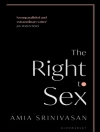This volume examines the world of German women writers who emerged in the burgeoning literary marketplace of eighteenth-century Europe.
Beginning in the 1770s, the German literary market experienced unprecedented growth. The enormous demand for reading materials that stimulated this burgeoning market created new opportunities for women writers. At the same time, they still faced numerous obstacles. The new opportunities and limitations imposed on women writers are the subject of this book. The eleven essays contained within look beyond the negative strategies women writers employed, such as hiding their intellectual accomplishments or legitimizing their works by subordinating them to non-artistic purposes. Instead, they ask how women wrote about their own creative processes both directly, for example, by sketchinga female poetology, and indirectly, through literary representations of female authorship. This volume examines concepts of female authorship as they are presented in women’s correspondence, theoretical statements, and literary works. The contributors bring to life the collaborative literary world of female writers through explorations of familial and professional mentorships, salons, writing circles, and their correspondences. They consider how female authors positioned themselves within contemporary intellectual discourses and analyze the tropes that shaped ideas about their authorship throughout the emerging literary marketplace of eighteenth century Europe.
Contributors: Karin Baumgartner, Margaretmary Daley, Ruth P. Dawson, Denise M. Della Rossa, Renata Fuchs, Amy Jones, Julie L. J. Koehler, Elisabeth Krimmer, Sara Luly, Monika Nenon, Lauren Nossett, Angela Sanmann.
Elisabeth Krimmer is Professor of German at the University of California, Davis, and Lauren Nossett is Visiting Assistant Professor of German at Randolph-Macon College.
Inhaltsverzeichnis
Introduction
Empowering Germany’s Daughters: On the Pedagogical Program and the Poetic Techniques of Sophie von La Roche
‚Ich spreche lieber von guten Büchern‘: Sophie von La Roche’s Concept of Female Authorship and Readership
Challenging Female Ideals: Marie-Elisabeth de La Fite’s Translation of Sophie von La Roche’s
Geschichte des Fräuleins von Sternheim
Catherine II, Polyxene Büsching, and Johanna Charlotte Unzer: A Literary ‚Community of Practice‘
Ghostwriters: The Apparitional Author in Benedikte Naubert’s ‚Die Weiße Frau‘ (1792) and Sophie Albrecht’s
Das Höfliche Gespenst (1797)
Vampirism Inverted: Pathology, Gender, and Authorship in Karoline von Günderrode’s ‚Die Bande der Liebe‘
Wozu eine Amazonen-Literatur? Literary Creativity and Productivity in the Writings of Helmina von Chézy
Women Writers and the Märchenoma: Foremother, Identity, and Legacy
The Illegitimacy of Authorship and the Legitimization of Passion in
Agnes von Lilien Margaretmary Daley
The Politics of the Female Body in Louise Aston’s and Fanny Lewald’s Writings through the Prism of the Romantic Theory of Sociability and Dialogue
Weibliche Irrsterne: Louise Otto-Peters and the Notion of Female Genius in Nineteenth-Century Germany
Über den Autor
ELISABETH KRIMMER is Professor of German at the University of California, Davis.












